NCLT Vs. CLB
The Law Commission of India in its 124th 1 Report of 1988 pointed out that the different types of litigation coming before the High Court in exercise of its wide jurisdiction has to some extent been responsible for a very heavy institution of matters in the High Courts and recommended for establishment of specialist Tribunals. With the intention of establishing a separate tribunal to deal with all issues or disputes under the Companies Act,1956 a Special Tribunal and Appellate Tribunal called National Company Law Tribunal and National Company Law Appellate Tribunal were sought to be established through the Companies (Second Amendment) Act,2002.
The Companies Amendment Act, 2002 inserted new parts 1B &1C in the Companies Act,1956 for the formation of NCLT & NCLAT 2. The CLB constituted under Section 10E (1) of Companies Amendment Act,2002 shall stand dissolved and all matters or proceedings or cases pending before the CLB shall stand transferred to the NCLT 3.However,the same did not get notified.
In the year 1999, the Government of India set up a High Level Committee headed by Justice V.B. Eradi, to examine and make recommendations with regard to desirability of changes in existing law relating to winding up of companies so as to achieve more transparency and avoid delays in the final liquidation of the companies. Balakrishna Eradi Committeee Report envisaged the setting up of NCLT &NCLAT which have jurisdiction and power exercised by the CLB.
There is a convergence of corporate jurisdiction whereby the entire corporate jurisdiction under
- Company Law Board (CLB),
- Board for Industrial & Financial Reconstruction (BIFR) and the
- Appellate Authority for Industrial and Financial Reconstruction (AAIFR) and
- various High Courts will be merged into one under NCLT & NCLAT.
The National Company Law Tribunal (NCLT) and the National Company Law Appellate Tribunal
(NCLAT) have been constituted by Central Government with effect from 1 June, 2016 4. This would dissolve the Company Law Board (CLB) as constituted under the Companies Act, 1956 from the same day.
S.No |
Clauses |
National Company Law Tribunal Rules, 2013 (Draft Rules) |
Company Law Board Regulations,1991 (Regulations) |
| 1. | Jurisdiction of the Bench | 11 benches- Two in New Delhi and one each at Ahmedabad, Allahabad, Bengaluru, Chandigarh, Chennai, Gauhati, Hyderabad, Kolkata & Mumbai 5. | 4 benches- Kolkata, New Delhi, Chennai & Mumbai 6. |
| 2. | Matters | Power of rectification of register, complaints regarding refusal to transfer/ transmitting securities, rectification of registers of members, oppression & mismanagement and class action suits.
Disputes relating to reduction of capital, mergers and amalgamations and winding up.(not yet notified) |
Power of rectification of register, complaints regarding refusal to transfer/ transmitting securities, rectification of registers of members, oppression & mismanagement. |
| 3. | Amicus Curie | The Tribunal at its discretion permit an Amicus Curie to communicate views on any legal issues 7. | No such regulation mentioned under the CLB, Regulations. |
| 4. | Electronic filing & service | The Draft Rules provides for electronic filing & services such as:
|
No such services mentioned under the CLB, Regulations. |
| 5. | Appeals | Aggrieved persons can appeal to NCLAT 8 and thereafter to Supreme Court 9. | Aggrieved persons can appeal to High Court and thereafter to Supreme Court. |
| 6. | Bar of Jurisdiction | City Civil Court shall not have jurisdiction in respect of any matter which the NCLT or NCLAT shall determine 10. | There is no express provision for the bar of jurisdiction. |
Once the Companies Amendment Bill,2016 (pending before the Parliamentary Standing Committee) which provides for amendments to the Companies Act, 2013, including amendment to be made on constitution of NCLT and NCLAT is passed shall face certain changes. Also, the provisions relating to reduction of share capital, winding-up and compromise or arrangement (merger/demerger), etc., will remain under the jurisdiction of High Court till they are notified.
Notes:
- The High Court’s arrear- A Fresh Report ↩
- Section 10FA of Companies Amendment Act,2002 ↩
- Section 10FB of Companies Amendment Act,2002 ↩
- Ministry of Corporate Affairs vide Notification dated 01.06.2016 ↩
- Rule 4 of the Draft Rules ↩
- Regulation 7 of the Regulations ↩
- Rule 96 of the Draft Rules ↩
- Section 421 of Companies Act,2013 ↩
- Section 423 of Companies Act,2013 ↩
- Section 430 of Companies Act,2013 ↩
Insolvency and Bankruptcy Code, 2016
Companies (Appointment and Remuneration of Managerial Personnel) Amendment, Rules,2016
Leave a comment
You must be logged in to post a comment.

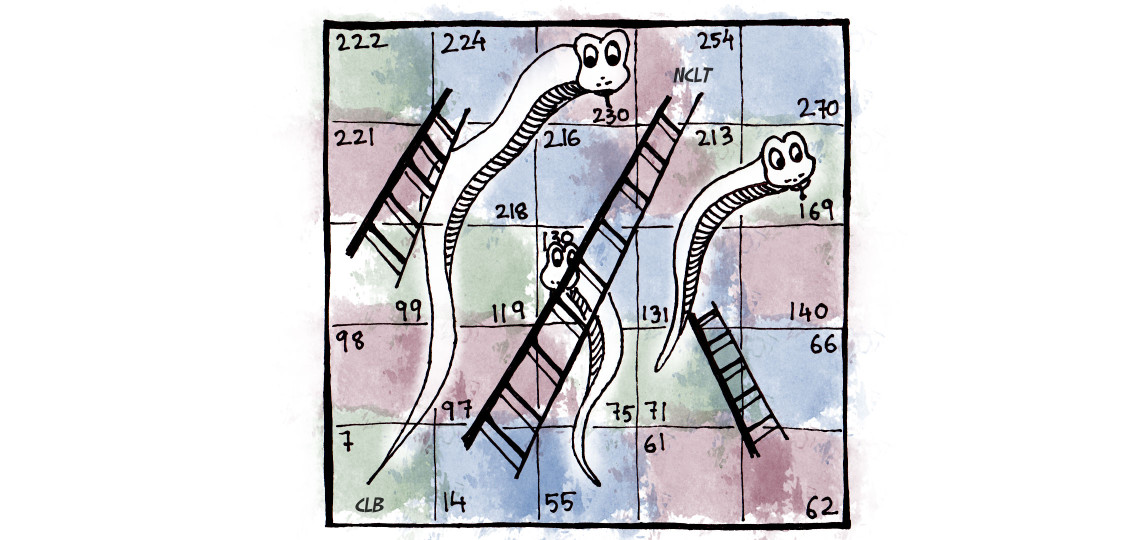
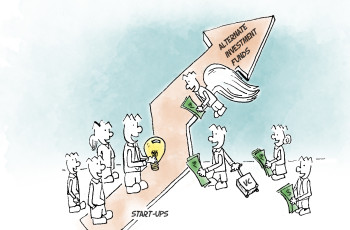
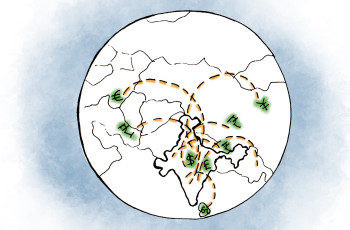
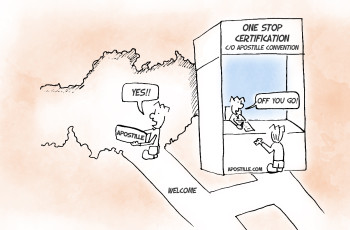
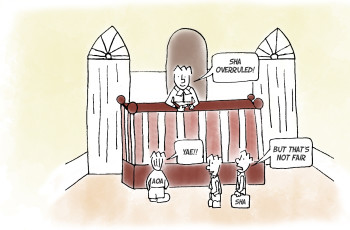
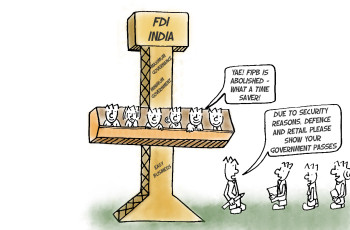
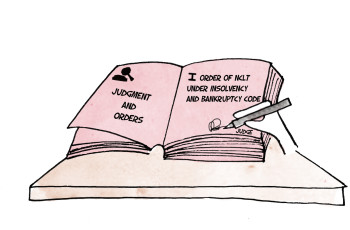

 He holds a Bachelor’s and Master’s Degree in Corporate Secretaryship and a Degree in Law. He is a Fellow member of the Institute of Company Secretaries of India and an Associate Member of the Corporate Governance Institute, UK and Ireland. He has also completed a program from ISB on ‘Value Creation through Mergers and Acquisitions.
He holds a Bachelor’s and Master’s Degree in Corporate Secretaryship and a Degree in Law. He is a Fellow member of the Institute of Company Secretaries of India and an Associate Member of the Corporate Governance Institute, UK and Ireland. He has also completed a program from ISB on ‘Value Creation through Mergers and Acquisitions. Mr P Muthusamy is an Indian Revenue Service (IRS) officer with an outstanding career of 30+ years of experience and expertise in all niche areas of Indirect Taxes covering a wide spectrum including GST, Customs, GATT Valuation, Central Excise and Foreign Trade.
Mr P Muthusamy is an Indian Revenue Service (IRS) officer with an outstanding career of 30+ years of experience and expertise in all niche areas of Indirect Taxes covering a wide spectrum including GST, Customs, GATT Valuation, Central Excise and Foreign Trade. During his judicial role, he heard and decided a large number of cases, including some of the most sensitive, complicated, and high-stake matters on insolvency and bankruptcy, including many cases on resolution plans, shareholder disputes and Schemes of Amalgamation, De-mergers, restructuring etc.,
During his judicial role, he heard and decided a large number of cases, including some of the most sensitive, complicated, and high-stake matters on insolvency and bankruptcy, including many cases on resolution plans, shareholder disputes and Schemes of Amalgamation, De-mergers, restructuring etc., A K Mylsamy is the Founder, Managing Partner and the anchor of the firm. He holds a Degree in law and a Degree in Literature. He is enrolled with the Bar Council of Tamil Nadu.
A K Mylsamy is the Founder, Managing Partner and the anchor of the firm. He holds a Degree in law and a Degree in Literature. He is enrolled with the Bar Council of Tamil Nadu. Mr. K Rajendran is a former Indian Revenue Service (IRS) officer with a distinguished service of 35 years in the Indirect Taxation Department with rich experience and expertise in the fields of Customs, Central Excise, Service Tax and GST. He possesses Master’s Degree in English literature. Prior to joining the Department, he served for the All India Radio, Coimbatore for a period of about 4 years.
Mr. K Rajendran is a former Indian Revenue Service (IRS) officer with a distinguished service of 35 years in the Indirect Taxation Department with rich experience and expertise in the fields of Customs, Central Excise, Service Tax and GST. He possesses Master’s Degree in English literature. Prior to joining the Department, he served for the All India Radio, Coimbatore for a period of about 4 years. An MBA from the Indian Institute of Management, Calcutta, and an M.Sc. in Tourism Management from the Scottish Hotel School, UK, Ashok Anantram was one fo the earliest IIM graduates to enter the Indian hospitality industry. He joined India Tourism Development Corporation (ITDC) in 1970 and after a brief stint proceeded to the UK on a scholarship. On his return to India, he joined ITC Hotels Limited in 1975. Over the 30 years in this Organisation, he held senior leadership positions in Sales & Marketing and was its Vice President – Sales & Marketing. He was closely involved in decision making at the corporate level and saw the chain grow from a single hotel in 1975 to a very large multi-brand professional hospitality group.
An MBA from the Indian Institute of Management, Calcutta, and an M.Sc. in Tourism Management from the Scottish Hotel School, UK, Ashok Anantram was one fo the earliest IIM graduates to enter the Indian hospitality industry. He joined India Tourism Development Corporation (ITDC) in 1970 and after a brief stint proceeded to the UK on a scholarship. On his return to India, he joined ITC Hotels Limited in 1975. Over the 30 years in this Organisation, he held senior leadership positions in Sales & Marketing and was its Vice President – Sales & Marketing. He was closely involved in decision making at the corporate level and saw the chain grow from a single hotel in 1975 to a very large multi-brand professional hospitality group. Mani holds a Bachelor Degree in Science and P.G. Diploma in Journalism and Public Relations. He has a rich and varied experience of over 4 decades in Banking, Finance, Hospitality and freelance Journalism. He began his career with Andhra Bank and had the benefit of several training programs in Banking.
Mani holds a Bachelor Degree in Science and P.G. Diploma in Journalism and Public Relations. He has a rich and varied experience of over 4 decades in Banking, Finance, Hospitality and freelance Journalism. He began his career with Andhra Bank and had the benefit of several training programs in Banking. Mr. Kailash Chandra Kala joined the Department of Revenue, Ministry of Finance as ‘Customs Appraiser’ at Mumbai in the year 1993.
Mr. Kailash Chandra Kala joined the Department of Revenue, Ministry of Finance as ‘Customs Appraiser’ at Mumbai in the year 1993.
 S Ramanujam, is a Chartered Accountant with over 40 years of experience and specialization in areas of Corporate Tax, Mergers or Demergers, Restructuring and Acquisitions. He worked as the Executive Vice-President, Group Taxation of the UB Group, Bangalore.
S Ramanujam, is a Chartered Accountant with over 40 years of experience and specialization in areas of Corporate Tax, Mergers or Demergers, Restructuring and Acquisitions. He worked as the Executive Vice-President, Group Taxation of the UB Group, Bangalore. K K Balu holds a degree in B.A and B.L and is a Corporate Lawyer having over 50 years of Legal, Teaching and Judicial experience.
K K Balu holds a degree in B.A and B.L and is a Corporate Lawyer having over 50 years of Legal, Teaching and Judicial experience. Justice M. Jaichandren hails from an illustrious family of lawyers, academics and politicians. Justice Jaichandren majored in criminology and then qualified as a lawyer by securing a gold medal. He successfully practiced in the Madras High Court and appeared in several civil, criminal, consumer, labour, administrative and debt recovery tribunals. He held office as an Advocate for the Government (Writs Side) in Chennai and was on the panel of several government organizations as senior counsel. His true passion lay in practicing Constitutional laws with focus on writs in the Madras High Court. He was appointed Judge, High Court of Madras in December 2005 and retired in February 2017.
Justice M. Jaichandren hails from an illustrious family of lawyers, academics and politicians. Justice Jaichandren majored in criminology and then qualified as a lawyer by securing a gold medal. He successfully practiced in the Madras High Court and appeared in several civil, criminal, consumer, labour, administrative and debt recovery tribunals. He held office as an Advocate for the Government (Writs Side) in Chennai and was on the panel of several government organizations as senior counsel. His true passion lay in practicing Constitutional laws with focus on writs in the Madras High Court. He was appointed Judge, High Court of Madras in December 2005 and retired in February 2017. S Balasubramanian is a Commerce and Law Graduate. He is a member of the Delhi Bar Council, an associate Member of the Institute of Chartered Accountants of India, the Institute of Company Secretaries of India and Management Accountants of India.
S Balasubramanian is a Commerce and Law Graduate. He is a member of the Delhi Bar Council, an associate Member of the Institute of Chartered Accountants of India, the Institute of Company Secretaries of India and Management Accountants of India.